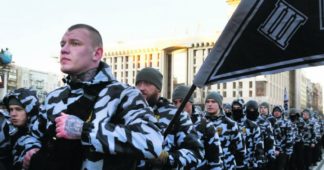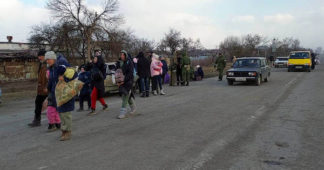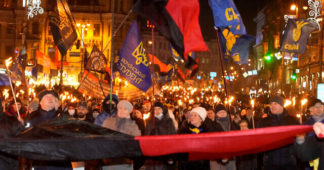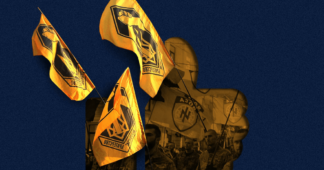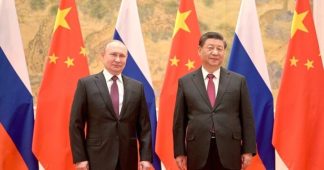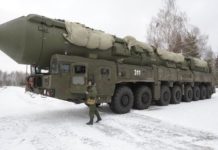The far-right neo-Nazi group has expanded to become part of Ukraine’s armed forces, a street militia and a political party.
Mar 1, 2022
As the Russian invasion of Ukraine enters its sixth day, a Ukrainian far-right military regiment is back in the headlines.
Russian President Vladimir Putin referenced the presence of such units within the Ukrainian military as one of the reasons for launching his so-called “special military operation … to de-militarise and de-Nazify Ukraine”.
On Monday, Ukraine’s national guard tweeted a video showing Azov fighters coating their bullets in pig fat to be used allegedly against Muslim Chechens – allies of Russia – deployed in their country.
Azov has also been involved in training civilians through military exercises in the run-up to Russia’s invasion.
So what is the Azov regiment?
Azov is a far-right all-volunteer infantry military unit whose members – estimated at 900 – are ultra-nationalists and accused of harbouring neo-Nazi and white supremacist ideology.
The unit was initially formed as a volunteer group in May 2014 out of the ultra-nationalist Patriot of Ukraine gang, and the neo-Nazi Social National Assembly (SNA) group. Both groups engaged in xenophobic and neo-Nazi ideals and physically assaulted migrants, the Roma community and people opposing their views.
As a battalion, the group fought on the front lines against pro-Russian separatists in Donetsk, the eastern region of Ukraine. Just before launching the invasion, Putin recognised the independence of two rebel-held regions from Donbas.
A few months after recapturing the strategic port city of Mariupol from the Russian-backed separatists, the unit was officially integrated into the National Guard of Ukraine on November 12, 2014, and exacted high praise from then-President Petro Poroshenko.
Continue reading at www.aljazeera.com
We remind our readers that publication of articles on our site does not mean that we agree with what is written. Our policy is to publish anything which we consider of interest, so as to assist our readers in forming their opinions. Sometimes we even publish articles with which we totally disagree, since we believe it is important for our readers to be informed on as wide a spectrum of views as possible.
